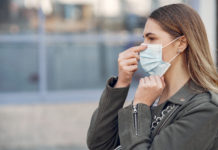Hair loss, also known as alopecia, affects millions of Americans. Although hair loss usually doesn’t pose a threat to your health, it has a tremendous negative impact on your self-image and sense of well-being.
On average, a person loses between 50 and 100 hairs every day. Various reasons, like thyroid issues, stress, or simply aging, can cause hair loss. While some kinds of shedding are temporary, some are permanent.
If you experience more sudden loss, loss in patches, or overall thinning, you may want to see your doctor.
Before you take action to prevent hair loss, you must identify the reason you are losing hair.
1. Heredity
Also known as hereditary-pattern baldness, genetic hair loss is the most common cause of hair loss. A natural condition caused by genetics, hormone levels, and aging usually affects men but also occurs in women.
Hereditary-pattern baldness starts with thinning of the hair and often advances to complete hair loss on parts of the scalp.
There is no cure for normal hereditary hair loss, and it is permanent. Treatment can help slow or stop hair loss.
2. Hormonal Changes
Hormonal changes affect the growth cycle of hair and lead to increased hair fall. When hormones are off-balance, our hair tends to be dry and thin.
Women experience hormonal changes during pregnancy. While you are pregnant, your hormones keep your hair from falling out as often as it usually does. This is the reason why pregnant women tend to have thicker and more luscious hair. After childbirth, your hormones shift again, and you will experience hair loss. Don’t worry; this condition is temporary and reversible.
Hormonal birth control can also trigger hair loss, especially if you have a history in your family. Be sure to check with your doctor for a non-hormonal option.
Menopause is another hormonal cause for hair loss, that should go away after 6 months.
3. Medications
When taking different medications, be sure to check at the side effects – hair loss can be one of them. Such meds include antidepressants, blood thinners, anabolic steroids or arthritis, gout, heart problems, high blood pressure drugs, or acne medications high in vitamin.
4. Stress
Studies show that some people can present hair loss in increased periods of stress or emotional trauma. Anxiety and stress can deprive your hair of essential nutrients and can also stop your hair growth.
Whether you are stressing about work or personal issues, remember a healthy mind equals a healthy body.
5. Excessive Hair Styling
Sometimes your styling routine is causing damage to your hair. Procedures like bleaching, perming, curling, and straightening can lead to hair breakage.
Even if you comb your hair when it’s wet or brushing too hard or too often, it can damage your strands and make them break.
6. Vitamin Deficiency
Your hair is made up of protein, amino acids, and peptide bonds. That is why a balanced diet is essential for healthy hair.
When your iron levels drop, so can your hair. Most likely, you’ll have other low-iron symptoms like brittle nails, yellow or pale skin, shortness of breath, weakness, and a fast heartbeat.
Be sure to add proteins to your diet to ensure hair growth. Adding more fish, meat, eggs, nuts, and seeds to your meals can pack the necessary protein.
7. Eating Disorder
Anorexia and bulimia can cause your hair to fall out because your body isn’t receiving the nutrients it needs to grow and maintain healthy hair. Both are mental disorders, and they need to be treated by medical specialists and health professionals.
8.Lifestyle Habits
Lifestyle habits like sleep deprivation, working outdoors in the sun, and lack of exercise can cause hair loss.
Research shows that smoking also can damage your hair. The smoke itself is pollution that’s capable of damaging your hair and skin. The cigarettes can damage the DNA of your hair follicles, which can disrupt your hair growth cycle.
Overexposure to the sun’s UV rays can damage your hair. People who spend a lot of time outdoors should always wear a hat.
Are you suffering from hair loss? Make sure to check Hair Loss Prevention: 5 Tips to Help Save Your Hair


























